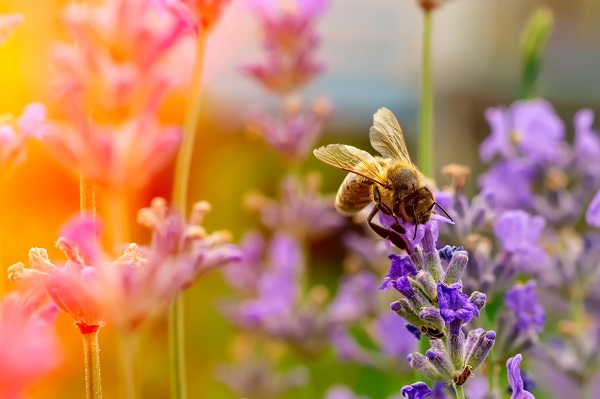 Credit: kosolovskyy - stock.adobe.com
Credit: kosolovskyy - stock.adobe.com
Luxembourg's Ministry of the Environment, Climate and Sustainable Development announced on Monday that the Grand Duchy has obtained for the first time a national unifying document to preserve pollinators.
Determined to halt the massive disappearance of pollinators, a devastating phenomenon as much for food security as for the maintenance of natural ecosystems, the Luxembourg government recently adopted the first national action plan for the preservation of pollinating insects for the period 2021 to 2026.
The implementation of the 21 measures outlined in this plan on Luxembourg territory from 2021 concerns all actors, whether in the public sector, the economy or civil society.
Pollinating insects are currently undergoing a serious global extinction crisis. Today, one in ten bee and butterfly species are on the verge of extinction, according to the International Union for Conservation of Nature (IUCN). This crisis is explained by a complex network of influencing factors linked to human activities, namely loss of natural habitats through fragmentation and degradation, intensive agricultural practices, the use of pesticides, biological causes such as disease and invasive alien species and climate change, which alters the balance of ecosystems.
Aware of the urgent need to act, the Luxembourg government has adopted an ambitious action plan which aims to support all sectors of activity and initiatives which contribute to the preservation of pollinators. This plan is the result of a participatory process collecting more than 560 contributions and integrating the recommendations of the scientific world and experts in the field of pollinator protection.
According to the Environment Ministry, the plan is fully in line with commitments at the European level such as the EU Pollinators Initiative and the EU's Biodiversity Strategy for 2030, which aims in particular to halt the decline of pollinators.
At the national level, the plan establishes links with the various policy sectors deemed essential for an ambitious national initiative in favour of pollinating insects, in particular the national implementation of the Common Agricultural Policy (CAP), the national nature protection plan, the national action plan for the reduction of plant protection products and the PAN-Bio 2025 national action plan to promote organic farming.
Over the 2021-2026 period, the plan involves mobilising as many players as possible to take concrete action in favour of pollinators and the preservation of the environment.
The plan proposes 21 actions from 2021 which aim not only to preserve and restore pollinating species but also the communities in which they are integrated. The objectives are as follows: to avoid the decline and disappearance of rare and vulnerable species; to conserve, restore and reconnect communities of pollinating insects; to conserve, restore and reconnect the habitats that host these pollinators; to preserve and restore ecosystem services provided by pollinators.
The 21 actions revolve around three major pillars for the protection of pollinators, namely: protection, conservation and management (eleven actions); improving knowledge (four actions); training, knowledge sharing and awareness raising (six actions).
These actions aim to promote good practices and increase floral resources and lodgings in all green spaces, whether public or private, in all sectors concerned, such as agriculture and forestry, in protected areas and even in urban areas. The problem of pesticides and light pollution is also addressed in a consequent manner.
At the same time, knowledge of pollinators will be improved, for example through national monitoring of pollinators or the establishment of an atlas of wild bees and butterflies.
Appropriation of good practices in pollinator preservation will be targeted through the training of (future) professionals and through communication and awareness-raising actions for managers and the general public.
This plan is therefore based on participation and collective consciousness.
A website specially dedicated to the action plan, www.planpolliniseur.lu, lists all the actions of the plan and also constitutes a collection of all relevant information and projects relating to pollinators. This website will be expanded as the action plan is implemented.








